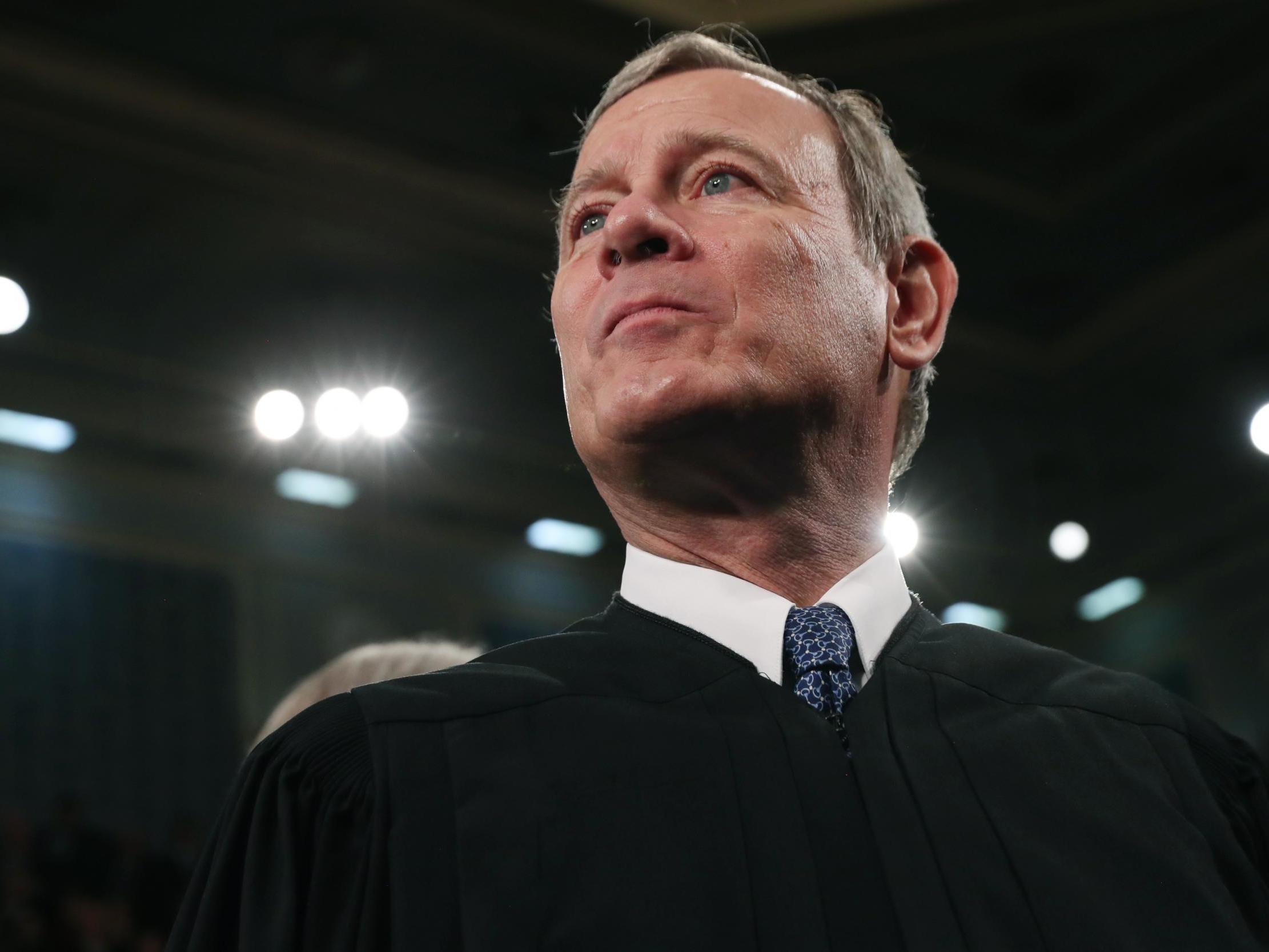The Supreme Court is a danger to American democracy, whether Chief Justice Roberts sided with liberals on abortion or not
Mitch McConnell has made sure of that


Your support helps us to tell the story
From reproductive rights to climate change to Big Tech, The Independent is on the ground when the story is developing. Whether it's investigating the financials of Elon Musk's pro-Trump PAC or producing our latest documentary, 'The A Word', which shines a light on the American women fighting for reproductive rights, we know how important it is to parse out the facts from the messaging.
At such a critical moment in US history, we need reporters on the ground. Your donation allows us to keep sending journalists to speak to both sides of the story.
The Independent is trusted by Americans across the entire political spectrum. And unlike many other quality news outlets, we choose not to lock Americans out of our reporting and analysis with paywalls. We believe quality journalism should be available to everyone, paid for by those who can afford it.
Your support makes all the difference.To the pleasant surprise of pro-choice proponents, the Supreme Court did not gut abortion rights today. Conservative Chief Justice John Roberts joined with the court's four liberals to block a Louisiana abortion law that would have closed all the state's clinics and effectively have allowed similar shutdowns in other states controlled by conservative legislators. Roberts has also blocked Trump's executive repeal of rights for undocumented people brought to the US as children this term. And he recently sided with liberals and conservative justice Neil Gorsuch to declare employment discrimination against LGBT people to be unconstitutional.
Senate Majority leader Mitch McConnell and President Donald Trump have ensured that the Supreme Court will be under conservative control for at least a generation. Democratic candidates during the primary proposed term limits on justices and adding seats to the court to try to rectify this imbalance. Now that the court hasn't done the worst, though, Democrats may feel inclined to back away from these changes. But they shouldn't.
In its current form, the Supreme Court remains an unrepresentative barrier to change, and a danger to democracy. If we want to protect the country from further authoritarian decline, we need to shore up and revamp our institutions. That means reforming the court.
Republicans have won the popular vote in a presidential election once in the past 32 years. Since the Supreme Court is appointed by the president, Democrats should, by all rights, have at least a majority in the body. Instead, Republican appointees are a majority on the court, 5-4. Clearly something has gone wrong.
One thing that has gone wrong is Mitch McConnell. In February 2016, conservative justice Antonin Scalia died. Obama nominated judge Merrick Garland to replace him. But McConnell refused to allow hearings on Garland's nomination. He denied Garland a vote for an unprecedented nine months, until Trump was elected president and appointed conservative Neil Gorsuch to the seat.
Nor was this just a one-off. During the 2016 race, Republicans vowed to block any Democratic appointee to the court if Clinton won the election and Republicans retained control of the Senate. It is quite possible that Republicans will never allow a Democratic president to pass a justice through a Republican Senate again.
McConnell's aggressive procedural gimmickry is mirrored by Republican efforts to disenfranchise Democratic voters in local and national elections. In Wisconsin, Republicans drew district boundaries in such a way that they can win 60 percent of state house seats even with 48 percent of the vote. In Georgia in 2018, Georgia Secretary of State Brian Kemp purged voter rolls and discarded voter applications in the Governor's election in which he himself was the Republican candidate. For 2020, Texas has closed hundreds of polling sites in Black and Latinx neighborhoods where voters traditionally vote for Democrats. The result will be long lines, chaos, and delays which may discourage some from going to the polls.
In theory, the courts, and ultimately the Supreme Court, are supposed to ensure that presidential elections are free and fair. But, predictably, a Republican Supreme Court has been reluctant to prevent the disenfranchisement of Democratic voters. The court notoriously gave George W Bush the presidency in 2000 in Bush v. Gore in a partisan 5-4 decision. This, not coincidentally, helped ensure that the Court would remain Republican-dominated thanks to Bush appointees Roberts and Samuel Alito.
The conservative court has also refused to block Republican gerrymanders. Perhaps worst of all, Roberts' court struck down the Voting Rights Act which forced states which had a history of discrimination to get federal approval before enacting voting changes affecting Black people and other minorities. If the VRA were still in place, voter suppression schemes like those in Georgia and Texas could be quashed if they were implemented, without lengthy court battles.
Republicans, then, aggressively and determinedly work to disenfranchise Democratic voters. They do that in part to control the Supreme Court. That in turn allows them to continue disenfranchising voters.
The only way out of this vicious circle is for Democrats to be as aggressive in defending democracy as Republicans have been in attacking it. Most pressingly, Democrats cannot allow McConnell's theft of a Supreme Court seat to stand.
The quickest, most direct, and most plausible way to redress the imbalance is to pass legislation expanding the size of the court as soon as Democrats control the presidency and the Senate. Putting term limits on Supreme Court justices requires a constitutional amendment, but adding justices simply requires a vote of Congress and the president's signature. The next Democratic president who has a Democratic Senate should expand the court to 11, and create a Democratic liberal majority.
Of course, next time the Republicans control the presidency and Congress, they may simply add justices of their own. Partisans packing the court to their advantage is not ideal. But it's better than the current status quo, where Republicans can control the court forever, and Democrats and the left just have to cross their fingers and hope for the occasional unexpected victory.
Democracy can't survive long-term when politicians are unaccountable to voters. The Republican assault on voting rights is an attack on the foundations of US democracy. That assault has given them control over the Supreme Court, which then allows them to continue to undermine voting rights. Under these circumstances, packing the courts isn't an attack on US institutions. It's the only way to preserve them.
Join our commenting forum
Join thought-provoking conversations, follow other Independent readers and see their replies
Comments